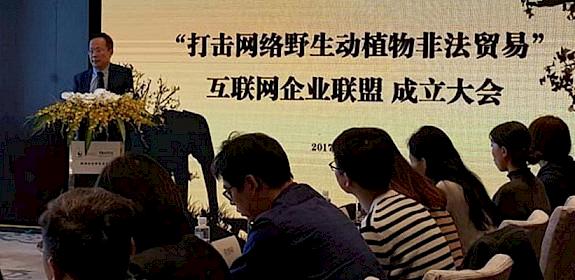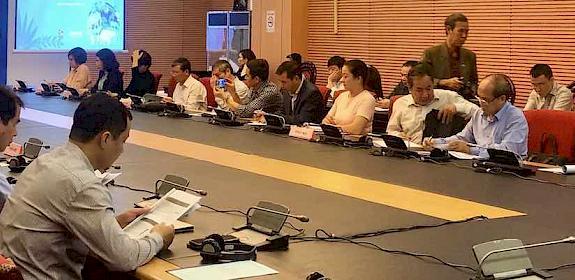ASEAN wildlife crime task forces meet in Lao PDR
Vientiane, Lao PDR, 28th May 2008—Members of ASEAN-WEN, the world's largest wildlife law enforcement network, gathered in Vientiane this week to map out the next steps to suppress the rampant wildlife crime in Southeast Asia, which is robbing the region of its rich biodiversity and natural resources.

The meeting brought together police, Customs and Environmental Officers from Brunei Darussalam, Cambodia, Indonesia, Malaysia, Myanmar, Philippines, Singapore, Thailand and Viet Nam and hosts Lao PDR to review progress in implementing the ASEAN Wildlife Enforcement Network (ASEAN-WEN). Delegates from the USA, New Zealand, Interpol and the CITES Secretariat also attended.
Speaking at the opening, His Excellency Dr Ty Phommasack, Deputy Minister of Agriculture and Forestry of the Lao PDR, commented: “Our ASEAN region is currently a hub for the illegal trade in wild fauna and flora in the region. Some ASEAN member countries are source countries for wildlife, while at the same time trans-shipments pass through other member states supporting the illegal trade in wildlife.”
ASEAN-WEN has already achieved much in its fight against wildlife crime, including the establishment of dedicated national Wildlife Crime Task Forces by most member countries, the establishment of a Program Co-ordination Unit, based in Bangkok, Thailand, and improved capacity of law enforcement officers to fight wildlife crime throughout the region, resulting in increased vigilance, cross border and inter-agency co-operation, seizures and arrests.
“Although the Network is relatively new, we have already seen the improvement in wildlife crime enforcement in the region during the past couple of years,” said Klairoong Poonpon Senior Liaison Officer of the ASEAN-WEN Program Co-ordination Unit.
Key topics discussed at the Lao PDR meeting included ways to improve investigations into organized wildlife crime, capacity building for wildlife crime task forces, the development of wildlife crime databases, and training for relevant presonnel. The role of the ASEAN-WEN Program Co-ordination Unit and the Network's draft sustainability plan were also discussed.
The meeting was facilitated by the Lao PDR Ministry of Agriculture and Forestry's Department of Forestry, with logistical and financial support from the ASEAN-WEN Program Coordination Unit (PCU) and the ASEAN-WEN Support Program, which is sponsored by the United States Agency for International Development (USAID).
ASEAN-WEN is an intergovernmental initiative bringing ASEAN governments together to combat wildlife crime. Wildlife Alliance and TRAFFIC, via a cooperative partnership with USAID, are providing technical assistance to government agencies that are implementing ASEAN-WEN. For more information, on ASEAN-WEN, please visit www.asean-wen.org or contact the ASEAN-WEN Program Co-ordination Unit at




